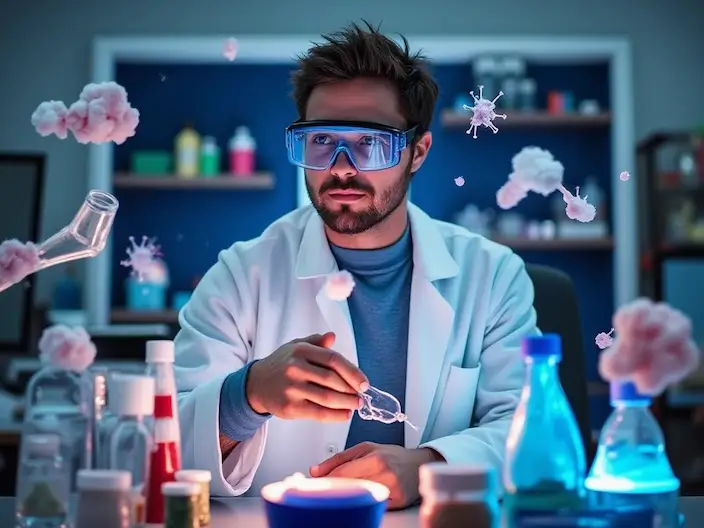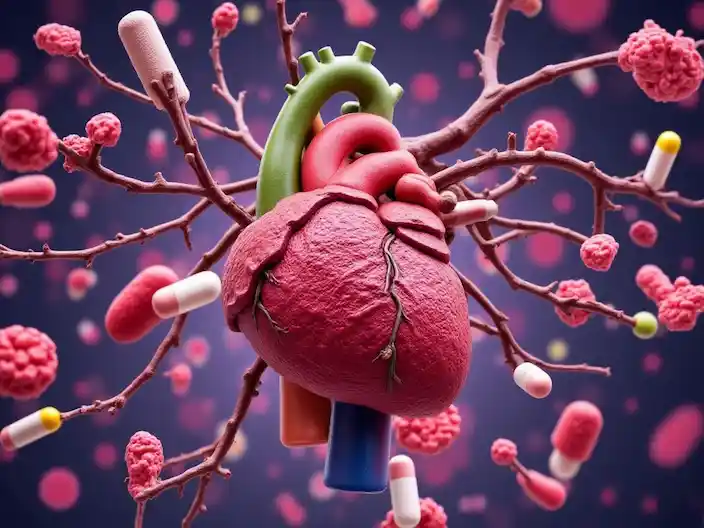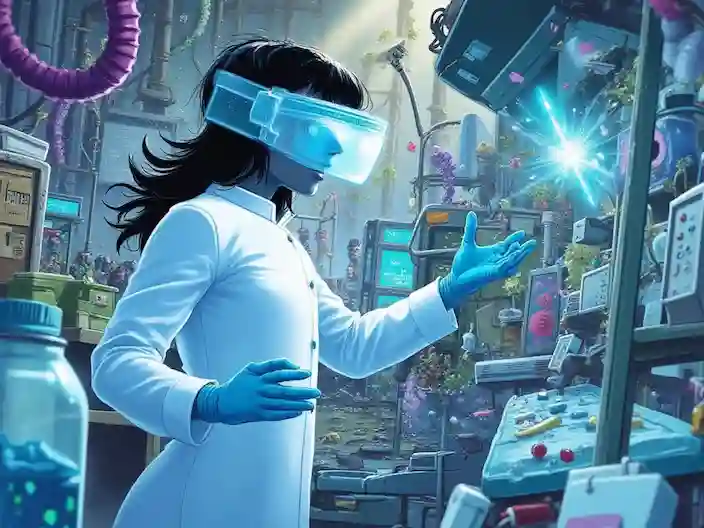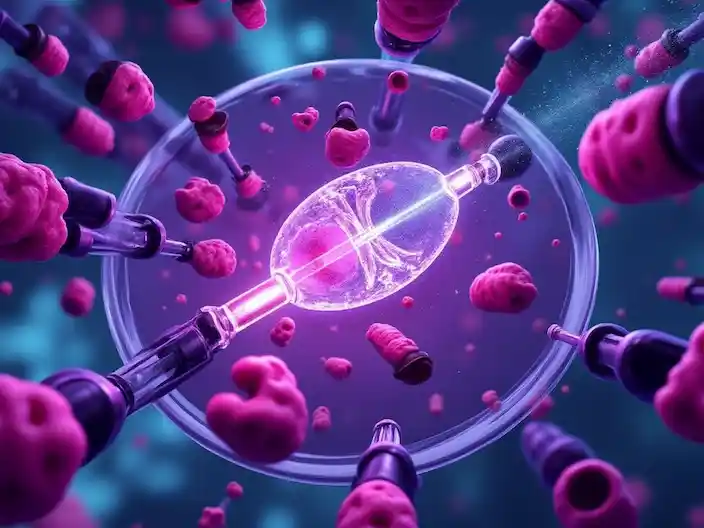Table of Contents
- Introduction
- Metaverse: A Platform for Biological Innovations
- Synthetic Biology: Creating Life in Digital Environments
- Biofoundries: Engines of Artificial Life Production
- Advanced Biological Simulation
- Large-Scale Biological Data Management
- Designing Artificial Creatures in Virtual Space
- Medical Applications
- Agricultural and Environmental Development
- Ethics and the Future of Synthetic Biology in the Metaverse
- Applications and Opportunities
- Advanced Medical Research
- Training and Empowering Biological Specialists
- Designing and Developing Artificial Biological Systems
- Development of Therapeutic and Pharmaceutical Technologies
- Sustainable Agriculture and Environmentalism
- Global Collaborations and Interdisciplinary Research
- Economic and Industrial Production
- Challenges
- Ethical and Philosophical Challenges
- Security and Cyber Issues
- Technical and Technological Challenges
- Legal and Regulatory Issues
- Social and Cultural Challenges
- Economic and Investment Issues
- Environmental Impacts
- Conclusion
- Transformative Opportunities
- Challenges and Future Outlook
- Final Perspective
Introduction
In recent decades, emerging technologies have rapidly evolved, reshaping the boundaries of science and knowledge. One of these prominent technologies is the Metaverse, which, by combining Virtual Reality (VR), Augmented Reality (AR), and the Internet of Things (IoT), has created interactive virtual worlds. These worlds have expanded beyond entertainment environments to become a multifaceted platform for scientific, educational, and research applications. On the other hand, Synthetic Biology, as one of the most advanced branches of biological sciences, has enabled the design and creation of customized biological systems. By combining Artificial Intelligence and modern biological tools, this field has created complex life models in controlled environments.
The convergence of the Metaverse and Synthetic Biology represents a milestone in the history of science and technology. This integration allows the creation of virtual biological environments that can function as digital laboratories for biological and medical research. Researchers will be able to simulate molecular and cellular interactions, study the effects of drugs in the body, and even model the conditions of various diseases with high precision.
Additionally, this convergence enables researchers and scientists to overcome the physical and temporal limitations of biological research, taking advantage of the Metaverse to simulate complex biological scenarios. For instance, with Virtual Reality, one can travel inside cells or directly interact with 3D biological models. These capabilities not only increase the accuracy of research but also significantly reduce the cost and time required for research.
Despite these advancements, utilizing the convergence of the Metaverse and Synthetic Biology presents numerous challenges. Ethical issues, data security, and technical complexities are among the barriers that must be carefully examined. However, the opportunities offered by this convergence for transformation in medical and biological sciences are vast and exciting, paving the way for unprecedented innovations in these fields.
This article explores the convergence in detail, examining its opportunities, challenges, and the potential impacts it may have on scientific and medical research.

Metaverse: A Platform for Biological Innovations
The Metaverse, as a vast and multidimensional virtual space, offers unique capabilities for research and development in biological sciences. This digital platform, by integrating advanced technologies such as Virtual Reality (VR), Augmented Reality (AR), and the Internet of Things (IoT), enables researchers and specialists to transcend physical limitations and enter the boundless world of biological simulations.
One of the key features of the Metaverse is its ability to provide interactive 3D environments where biological simulations can be performed with unprecedented accuracy and detail. For instance, modeling molecular and cellular structures, studying biological processes at the microscopic level, and observing complex interactions between molecules and organs in a virtual environment are just some of these applications. Researchers can simulate biological systems in the Metaverse on a scale that is difficult to achieve in the real world.
- Advanced Biological Simulations
In the Metaverse, it is possible to create simulated models of complex biological systems. For example, researchers can design models of the heart, liver, and other organs and test the effects of drugs or genetic modifications on their functions virtually. This approach not only speeds up research but also reduces laboratory costs and the need for live experimental models, such as animals or humans.
- Interacting with Large-Scale Biological Data
The Metaverse can present vast amounts of biological data in visual and interactive environments. This data, collected from sources such as laboratories, hospitals, and biological data banks, can be analyzed and interpreted in real-time in the Metaverse. This capability helps doctors and researchers gain deeper insights into diseases and biological conditions and offer better solutions.
- Training and Empowering Specialists
The Metaverse can also serve as a powerful educational tool for students, doctors, and biological specialists. Through interactive simulations, users can engage in practical learning. For example, a surgeon can practice complex procedures in a fully simulated environment, or a biology student can travel inside cells and observe their internal structures in 3D.
- Research at the Molecular and Nanoscale
By combining the Metaverse with nanotechnology, researchers can study the behavior of nanoparticles and their effects on cells in virtual environments. This approach is highly effective for developing drug nanoparticles or advanced biological materials.
- Global Collaboration Platform
The Metaverse, by offering a shared virtual space, facilitates global collaboration among researchers and scientists. Experts from around the world can simultaneously gather in a virtual environment, share ideas, and work on joint biological projects. These collaborations accelerate scientific progress and help bridge gaps between scientific communities.

Synthetic Biology: Creating Life in Digital Environments
Synthetic Biology, as one of the advanced branches of biological sciences, provides a new definition of life. By utilizing technologies such as genome design, biofoundries, and Artificial Intelligence, it enables the creation and manipulation of artificial biological systems. When integrated with digital environments like the Metaverse, Synthetic Biology can simulate, design, and test biological systems in a virtual space. This convergence could revolutionize biological and medical research.
- Biofoundries: Engines of Artificial Life Production
Biofoundries are advanced environments with automated technologies designed for the design, construction, testing, and optimization of artificial biological organisms. These systems utilize a “design-build-test-learn” cycle and employ advanced tools such as robotics, synthetic genetics, and machine learning to optimize the production of biological organisms. The integration of these biofoundries with the Metaverse allows this cycle to be transferred to virtual environments, where designs and experiments can be conducted and analyzed with higher precision.
- Advanced Biological Simulation
One of the most prominent features of Synthetic Biology in digital environments is the ability to accurately simulate biological systems at various scales. Researchers can simulate processes such as protein synthesis, gene behavior, and complex cellular reactions in digital environments. These simulations can lead to a better understanding of biological mechanisms and help develop new drugs, genetic therapies, and innovative biological technologies.
- Managing Large-Scale Biological Data
Synthetic Biology, when combined with the Metaverse, allows for the processing and management of vast amounts of biological data. Data collected from laboratories, clinics, and field research can be analyzed in virtual environments and used to optimize biological processes. For example, machine learning models can identify complex biological patterns and help improve the performance of biological systems.
- Designing Artificial Creatures in Virtual Space
One of the advances in Synthetic Biology in digital environments is the ability to design customized biological organisms. These organisms can be designed with specific features, such as drug production, pollution degradation, or energy generation. Using simulation tools in the Metaverse, researchers can test the behavior of these organisms under different conditions and choose the best designs for real-world implementation.
- Medical Applications
Synthetic Biology in the Metaverse can lead to significant advances in medicine. From designing artificial organs for transplantation to developing personalized treatments based on patient genetic data, these technologies have the potential to revolutionize disease diagnosis and treatment. For example, virtual models of the immune system can assist in studying how the body interacts with new drugs.
- Agricultural and Environmental Development
Synthetic Biology in digital environments can aid in the development of sustainable agriculture and environmental protection. Designing plants that are resistant to climate changes, producing microbes for water or soil purification, and developing biological systems to reduce pollution are among the applications of this technology. The Metaverse, with its advanced simulation tools, enables the testing and optimization of these technologies.
- Ethics and the Future of Synthetic Biology in the Metaverse
Despite the advancements in Synthetic Biology in the Metaverse, ethical and legal issues remain major challenges. Questions such as “Is the creation of artificial organisms justified?” or “How can we prevent the misuse of these technologies?” require special attention. Close collaboration between scientists, philosophers, and policymakers is essential to create comprehensive ethical frameworks.

Applications and Opportunities
The convergence of the Metaverse and synthetic biology has opened new horizons in scientific, medical, educational, and industrial fields. This convergence, due to its high potential for simulation, design, and interaction with biological systems, creates numerous opportunities for transformation in research and practical applications. Below, the applications and opportunities of this technological combination are explained in more detail:
- Advanced Medical Research
The Metaverse can provide an interactive environment for simulating the human body and testing therapeutic models.- Modeling Diseases: Using virtual biological environments, researchers can model complex diseases such as cancer, diabetes, or neurodegenerative diseases and study the effects of drugs and various treatments.
- Development of Personalized Treatments: By analyzing genetic and biological data of patients in the Metaverse, treatments tailored to their individual characteristics can be designed.
- Virtual Drug Trials: Before drugs enter human testing phases, their effects and interactions can be simulated in digital environments, reducing costs and risks.
- Training and Empowering Biological Professionals
The Metaverse can be a powerful tool for interactive education in medical and biological fields.- Surgical Simulations: Medical students can practice complex surgeries in highly accurate simulated environments and improve their practical skills.
- Molecular and Cellular Biology Training: Students can study cell structures, molecular interactions, and biological mechanisms in a three-dimensional and interactive way.
- Safe Experimentation: Virtual environments allow for high-risk or costly experiments to be conducted safely and affordably.
- Design and Development of Synthetic Biological Systems
Synthetic biology, using the Metaverse, can assist in the design and optimization of advanced biological systems.- Development of Artificial Organs: In the Metaverse, researchers can simulate organs such as the liver, heart, or lungs and study their function before actual production.
- Custom Microorganism Creation: Microbes that can eliminate pollutants or produce biological materials can be tested and optimized in these environments.
- Advanced Genetic Engineering: Using precise simulations in the Metaverse, researchers can design complex genetic modifications and observe their effects on biological systems.
- Development of Therapeutic Technologies and Pharmaceuticals
The Metaverse can transform the drug discovery and development process.- New Drug Production: Simulating drug interactions with proteins and biological molecules in digital environments allows for the identification of more effective drugs.
- Cellular and Molecular Research: Studying biological reactions at the nanometer scale can lead to the development of effective nanoparticle-based drugs for treating diseases.
- Artificial Intelligence in Pharmaceuticals: Machine learning algorithms in the Metaverse can suggest new pharmaceutical compounds and analyze their efficacy.
- Sustainable and Environmental Agriculture
The integration of the Metaverse and synthetic biology can help solve environmental and agricultural challenges.- Development of Climate-Resilient Plants: In simulated environments, researchers can design plant species that are resistant to drought, salinity, and pests.
- Recycling and Natural Resource Management: Designing microorganisms to purify water, recycle organic waste, and reduce air pollution is one of the applications of this technology.
- Increasing Agricultural Yield: Simulating plant growth cycles in the Metaverse can help optimize farming methods and farm management.
- Global Collaboration and Interdisciplinary Research
The Metaverse, as a shared virtual space, facilitates international collaboration.- Collaboration in Scientific Projects: Researchers from around the world can work simultaneously in virtual environments and share their findings.
- Interdisciplinary Networking: Integrating various fields such as biology, artificial intelligence, nanotechnology, and engineering in the Metaverse can lead to new innovations.
- Economic and Industrial Production
The convergence of the Metaverse and synthetic biology can have significant economic impacts.- Reducing R&D Costs: Digital simulations can replace costly experiments, optimizing processes.
- Creating New Job Opportunities: The development of technologies related to the Metaverse and synthetic biology can create new jobs in scientific, technological, and educational fields.
- Developing Digital Biotech Industries: Companies can design and produce customized biological products using Metaverse simulations.

Challenges in the Convergence of the Metaverse and Synthetic Biology
Despite the countless opportunities this convergence offers in scientific, medical, and industrial research, it faces serious challenges in various ethical, technical, legal, and social areas. These challenges not only have the potential to slow the progress of these technologies but may also create unintended consequences for human societies. Below are the main challenges of this convergence discussed in more detail:
- Ethical and Philosophical Challenges
- Manipulating Life: One of the most important ethical issues in synthetic biology is redefining life and manipulating biological systems. Do humans have the right to design and modify living organisms artificially?
- Creating Artificial Lifeforms: Creating organisms designed solely for research or industrial purposes raises questions about the rights of these entities and the responsibility humans have towards them.
- Use of Biological Data: Collecting and using individuals’ genetic and biological data to design artificial systems requires adherence to ethical principles regarding privacy and informed consent.
- Security and Cybersecurity Issues
- Data Theft: Sensitive biological data and genetic information stored in Metaverse environments can be targeted by cyberattacks.
- Misuse of Technologies: The potential misuse of synthetic biology to create dangerous organisms or biological weapons is a serious security concern.
- Cyberattacks on Simulation Systems: Metaverse environments designed for biological simulations could be subjected to cyberattacks, leading to the manipulation or destruction of research data.
- Technical and Technological Challenges
- Complexity of Biological Simulation: Accurately simulating biological systems, including molecular behaviors and biological interactions, requires high processing power and advanced algorithms, which are difficult and expensive to develop.
- Data Discrepancy: Coordination between real biological data and simulated models in digital environments is challenging.
- Sustainability of Virtual Environments: Creating stable and reliable virtual environments for large-scale biological research requires advanced technological infrastructure.
- Legal and Regulatory Challenges
- Lack of Clear Regulations: The convergence of the Metaverse and synthetic biology is still in its early stages, and comprehensive laws and regulations to govern these technologies do not yet exist.
- Legal Issues in Data Ownership: The ownership of biological data and the rights to use it are complex issues that require the creation of clear laws.
- Liability: In the event of problems or negative consequences, it is unclear who will be responsible for these outcomes (researchers, companies, or users).
- Social and Cultural Challenges
- Fear of New Technologies: Public concerns about emerging technologies such as the Metaverse and synthetic biology can lead to resistance to their acceptance.
- Social Divides and Inequality in Access: Access to advanced Metaverse and synthetic biology technologies may be limited to wealthy individuals or communities, leading to greater social inequality.
- Cultural Changes: The introduction of artificial lifeforms and digital biological systems into daily life may create cultural challenges that impact beliefs and values in societies.
- Economic and Investment Issues
- High Costs: The development of advanced technologies required for the convergence of the Metaverse and synthetic biology necessitates massive investment, which may be unattainable for many countries or companies.
- Profit and Loss Management: If these technologies are commercialized, the benefits might be distributed unevenly, leading to economic monopolies.
- International Competition: Intense competition between countries and companies to achieve further advancements in this field may lead to challenges such as sanctions or export restrictions.
- Environmental Impacts
- Unintended Consequences: The design and production of synthetic lifeforms may have unintended effects on natural ecosystems.
- Pollution of Biological Environments: If synthetic lifeforms leak into the environment, they could negatively impact biodiversity and ecosystem balance.
- Sustainability Issues: The development and use of synthetic biology and Metaverse technologies should be aligned with sustainable development principles to prevent excessive consumption of natural resources.

Conclusion
The convergence of the Metaverse and synthetic biology has revolutionized research methods and practical applications in biological and medical sciences. This technological combination offers innovative solutions to long-standing scientific challenges through accurate simulations and interactive digital environments. Creating virtual biological environments in the Metaverse allows researchers to study biological systems beyond physical and time limitations, in a safe and efficient space.
- Transformative Opportunities
This convergence creates numerous opportunities for innovation, including: - Advanced Medical Research: The ability to model diseases, simulate drug effects, and develop personalized treatments.
- Scientific Education and Empowerment: Creating interactive simulations for learning practical skills in medicine and biology.
- Bioengineering and Artificial Production: Accelerating the design and production of custom biological organisms and artificial organs.
- Global Collaborations: Connecting researchers and experts worldwide in a shared platform for exchanging knowledge and ideas.
These technologies can significantly enhance the productivity of biological research, reduce R&D costs, and shorten the time required to achieve meaningful results.
Challenges and Future Outlook
Despite the vast opportunities, this convergence faces serious challenges:
- Ethical issues related to manipulating life and using biological data.
- Security risks, such as cyberattacks on sensitive biological data and misuse of technologies for illegal purposes.
- Lack of legal frameworks to regulate and manage synthetic biology and Metaverse technologies.
- Social and cultural concerns regarding public acceptance and the impact of these technologies on societies.
To fully harness these potentials, it is necessary to:
- Develop comprehensive ethical and legal frameworks.
- Advance technological infrastructure for the sustainability and security of Metaverse environments.
- Promote widespread education and awareness of the applications and benefits of these technologies to reduce public concerns.
- Foster international and interdisciplinary collaborations to address challenges and enhance global standards.
Final Vision
In the coming decades, the convergence
of the Metaverse and synthetic biology has the potential to create transformative changes in medicine, agriculture, biotechnology, and education. These technologies can lead to significant advances in human well-being and sustainability. However, these advancements must be pursued with caution and responsibility to ensure that their long-term impacts benefit all societies equally.
Table of Contents
Toggle


One Response